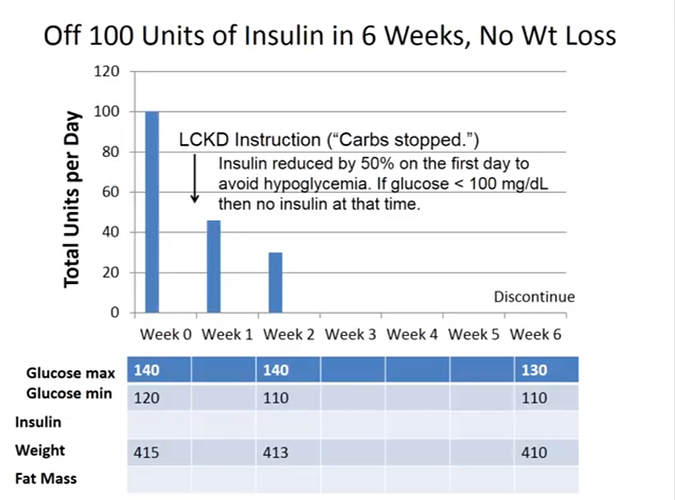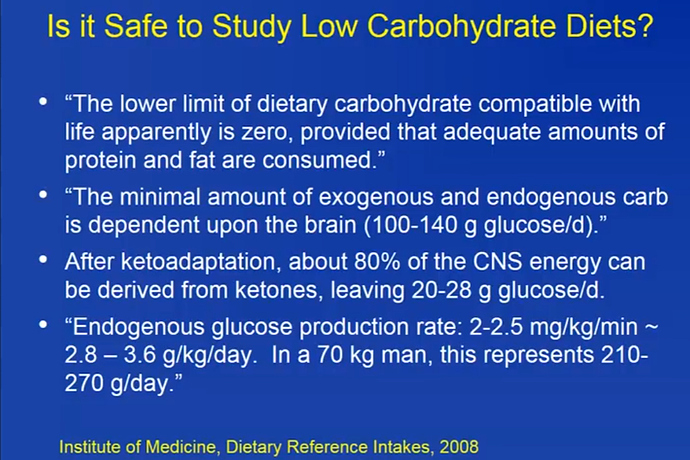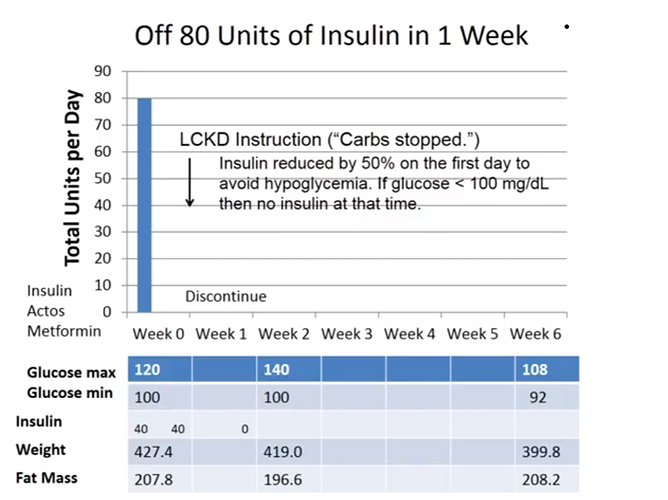New and a bit scary(?) article in The Guardian today
I notice it starts out saying fasting every other day. The reason that stuck out to me right away is that I read an article a few weeks back and the author stated that alternate day fasting has been shown to be harmful in certain circumstances but that other forms of IF have not shown any of the negative results. And that almost all research focuses solely on alternate day fasting and extrapolates from there.
It’s like the first paragraph is case in point.
I found some expert reactions to the findings:
http://www.sciencemediacentre.org/expert-reaction-to-unpublished-poster-presentation-on-diabetes-and-fasting-as-presented-at-the-european-society-of-endocrinology-annual-meeting-ece-2018/
IF in humans does not store fat, and does not lower metabolic rate. During the fast the body actually speeds up the metabolism to prepare you for a needed hunt. The additional drop in insulin during the fast will help you use you energy stored in the refrigerator you have around your belly. This drop in insulin will also assist in decreasing the resistance you have built up.
It’s interesting to me when papers say things like “…may cause insulin-resistance” or “…may cause diabetes”. I’d be curious to know if there are any documented cases of intermittent fasting in humans leading to either of these outcomes.
“May” means that someone did a bit of research that shows a small statistical correlation that is probably not all that significant. It may also be the result of some connection not made in the data.
For example, there is a well-known correlation between shoe size and reading comprehension, but that is because the older you are, the larger your shoe size, and the longer you’ve probably been in school. It is by such-like logic that buying larger shoes “may” increase your reading ability, lol!
Goddamn Graun - it is my favorite paper but they are just as susceptible to picking up this kind of BS to fill column inches and get comments as the rags…
As other have said… “May cause” - immediate sniff of BS 

“Society of Endocrinologists” - the second biggest keto hating class behind vegans. Fasting is almost as much of anathema. If keto is true then it makes a MOCKERY of their entire profession. My long-term T2 friend has been told by his Endo, who is supposedly one of the best in the country, that he should keep his A1C to 7 and the same old crap… if she is one of the best in the country (USA), then heaven help us all! I got him to LCHF (100g) and he brought his A1C to 5.7 (from 7.9) in 3 months. The Endo doesn’t like this and won’t adjust his insulin load. 





Endo’s failure to understand the basic hormonal model of metabolism is embarrassing and anything they can do to attack the positive things that they have largely never prescribed like keto and fasting makes them feel better about their SHAM of a profession. Shame on them.
Bastards! 
Reminds me of the old advertising slogan: “Our best is none too good”!
humans have 99% common genes with rats
https://www.quora.com/Are-humans-more-genetically-close-to-rats-or-chimps
I am not dismissing this. It is science and should be reviewed and put in perspective with all other studies. If we dismiss it out of hand, we are no better than the dietary guideline committees who we think are a bunch of Charlies!
The paper talks about there being evidence of damage to the rats pancreas. Perhaps caused by increased free radicals? And their markers for IR were increased. Seems a bit odd, as it flies in the face of the known movement downwards of insulin during a fast.
Not enough firm science here to stop me doing fasts, but if they repeat the study with people and get the same results, I would like to know more…
cheers
Alec
You do this to yourself. If your view of science is as a shining beacon of objectivity, then I have a bridge to sell you.
Dismissing clearly biased studies is NOTHING like the guideline committees who accepted the bias unquestioningly. Vegans etc. have been grabbing on to any shred of a negative reaction and trying to spin it into a deal breaker for keto like intramuscular fat (used for fuel in keto) and “physiological IR” (it’s not IR). This is no different… a threatened population (Endo’s) creates studies purposefully to attack the threat, just like the 7-Day Adventist universities do to promote plant-based, etc. At this point it’s no longer science, it’s lab-based propaganda.
Keep wasting your time on this if you want but it is just giving in to and promoting FUD.
Did these researchers review and cite existing literature on humans fasting?
Incidentally, I was texting with my 71-year-old mother in India the other day and out of the blue she told me she was doing overnight 18 hour fasts twice a week. I asked her why and she said (with no prompting from me) “Fasting heals the body.” and then she told me about how my (now 96-year-old and still going) grandfather fasted regularly throughout his life. Ancient wisdom, folks. 
I find it scary that newspapers are running with a story on preliminary findings of unpublished (ie not yet peer reviewed) research presented at a conference and giving it an appearance of having significance. Journalist have routinely showed themselves able to misinterpret published work but at least the public can review the source material to decide for themselves.
The previously referenced critiques by others in the field @Hallgeir_Olsen http://www.sciencemediacentre.org/expert-reaction-to-unpublished-poster-presentation-on-diabetes-and-fasting-as-presented-at-the-european-society-of-endocrinology-annual-meeting-ece-2018/
might exaggerate the difference between rat and human fasting but I think it is relevant.
I would like to add that the details of the diet have not been stated but typically lab rat chow is a very unnatural diet high in carbohydrates made from refined sugars, grains, vegetable oils, casein and soy protein. With the previous observation that a day of fasting in a rat is the equivalent of a much longer fast in a human I’d expect this is a perfect way to create diabetes. In people we know that extended fasting creates temporary insulin resistance. If you were to repeatedly cycle between extended fasting and over eating high carb high glycemic food you are going to maximize blood sugar swings and insulin response. I expect that if the research is ever published it will be a demonstration of how to spend a lot of money to torture rats with little bearing on human dietary patterns.
Here’s interesting insight into why even peer reviewed research is so often wrong:
https://newfoodeconomy.org/nutrition-research-statistics-problem/
@Alecmcq It may be “science” in the sense that a scientist did the research, but as I put in my earlier post, the word “may” is the giveaway. Without reading the actual article, I can tell you that all the scientists found is a correlation. Had they actually found proof of causality, they would make no bones about it.
The abstract should tell you the degree of correlation and its probability of reliability. If the correlation is not at least 2.0 and/or the p-value is greater than 0.001, is not worth writing home about. Also, the number of participants in the study is important. Data from 12 subjects? Yeah, so? From 12,000 subjects? Now you’ve got my attention.
P.S.—I’m pleased as punch to know that I share 99% of my genome with my sweet little ratties!
Opinion of a doctor who has actual patients and they are not mice or rats?
#AdaptLIVE with Dr. Eric Westman INTERMITTENT FASTING (Note: A Dr. Fung Fan???
)
AskADAPT: With Dr. Westman, "INSULIN RESISTANCE"
AskADAPT - Dr Eric Westman - MEAL TIME & FREQUENCY
Related:




